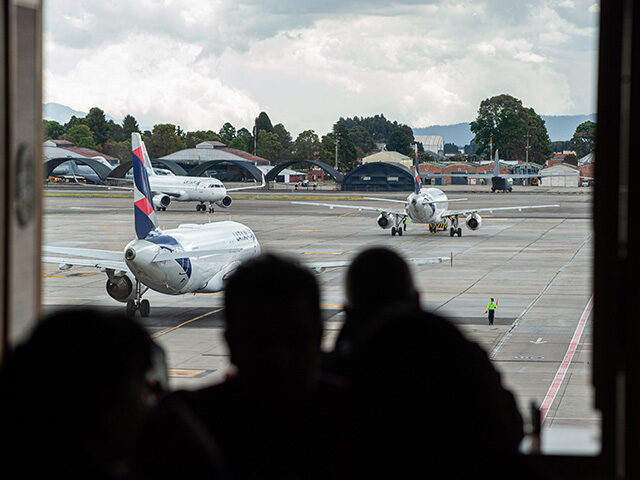Authorities in Colombia on Thursday refuted claims made by the United Nations Committee on Enforced Disappearances (CED), which stated that 20,000 unidentified bodies allegedly remain stored at a hangar in Bogotá’s El Dorado International Airport.
A U.N. CED delegation conducted a two-week visit to Colombia in late November to study the country’s decades-old, forced disappearance crisis. According to a U.N. press release, the group met with dozens of local government authorities, civil society organizations, and victims.
“Although enforced disappearances started in Colombia around the 1940s, they are not just a crime of the past. They continue to occur daily across the country in diverse circumstances,” the group said.
The delegation asserted that there are discrepancies between institutional records on the number of forced disappearance victims, with reported figures received by the group ranging from 98,000 to 200,000. The reported discrepancies, CED stated, “make it impossible to determine the true extent.”
At the end of the visit, the U.N. group issued a press conference on Thursday in which its members shared some of its preliminary findings and stressed that enforced disappearances “are not a crime of the past” in Colombia. The group added that the existing material and human resources of the Colombian state “are not sufficient to meet the demand.”
“Enforced disappearances are not a crime of the past. During these two weeks, the people we interviewed conveyed the image of a society overwhelmed by the phenomenon of disappearances, which continue to occur daily throughout the national territory,” Juan Pablo Albán, one of the members of the U.N. delegation, said.
The U.N. group claimed that, in addition to its other findings, thousands of unidentified bodies “lie in poorly managed cemeteries or storage facilities, such as a hangar at Bogotá airport where around 20,000 unidentified bodies are currently stored.” CED’s full report is slated to be released in April 2025.
Colombian authorities immediately rejected CED’s claims. The Legal Medicine Institute released a brief statement moments later in which the institution claimed to be “unaware of the existence of such a hangar and has not received requests from any authority for the study and analysis of such cases.”
The Colombian Attorney General’s Office responded by immediately launching an inspection of Bogotá’s El Dorado International Airport. According to the Attorney General’s Office, no such bodies were found in any of the airport’s hangars by local officials throughout the inspection.
“After visiting the 27 hangars, we were able to verify that they are dedicated to airport activities such as private passenger boarding, aircraft repair, and storage of equipment for ground operations,” Tito Perilla, advisor to the Colombian Human Rights Ombudsman’s Office told reporters.
Other Colombian authorities refuted the U.N. group’s claims in the morning hours of Friday. Mayor of Bogotá Carlos Fernando Galán described the allegations as “very grave” in remarks given to reporters.
Galán stated that his office has no information on the U.N. report’s claims over the alleged 20,000 bodies in the airport hangar and stressed that the international organization must clarify its assertions and offer more evidence.
“I think it is very important that the United Nations, in this case the mission that came to Colombia, provide the support to be able to make that statement because there is nothing, no indication, no element that the local authority, the Attorney General’s Office, the Medical Examiner’s Office, the Police or the airport have, that indicates to us that this information has any kind of support,” Galán said.
Colombian Interior Minister Juan Fernando Cristo issued a message on social media in which he thanked the United Nations for its work in Colombia, which he described as “fundamental in the construction of peace,” but called for the institution to clarify its assertions.
“This is a very serious and unverified statement in the face of which public opinion deserves transparency,” Cristo said.
The Colombian radio station La FM reported on Friday morning that it received an email from U.N. media officer Vivian Kwok stating that the CED delegation’s members are not U.N. personnel.
“Please note that the Committee on Enforced Disappearances is a monitoring body made up of independent human rights experts from around the world. They are not UN officials,” the email reportedly read.
Christian K. Caruzo is a Venezuelan writer and documents life under socialism. You can follow him on Twitter here.

COMMENTS
Please let us know if you're having issues with commenting.